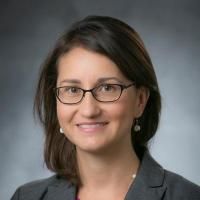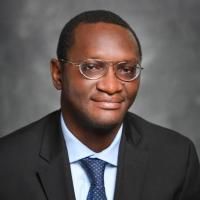Development of an Interactive Global Surgery Course for Interdisciplinary Learners.
Date
2021-03
Journal Title
Journal ISSN
Volume Title
Repository Usage Stats
views
downloads
Citation Stats
Abstract
Introduction
Global surgical care is increasingly recognized in the global health agenda and requires multidisciplinary engagement. Despite high interest among medical students, residents and other learners, many surgical faculty and health experts remain uniformed about global surgical care.Methods
We have operated an interdisciplinary graduate-level course in Global Surgical Care based on didactics and interactive group learning. Students completed a pre- and post-course survey regarding their learning experiences and results were analyzed using the Wilcoxon signed-rank test.Results
Fourteen students completed the pre-course survey, and 11 completed the post-course survey. Eleven students (79%) were enrolled in a Master's degree program in global health, with eight students (57%) planning to attend medical school. The median ranking of surgery on the global health agenda was fifth at the beginning of the course and third at the conclusion (p = 0.11). Non-infectious disease priorities tended to stay the same or increase in rank from pre- to post-course. Infectious disease priorities tended to decrease in rank (HIV/AIDS, p = 0.07; malaria, p = 0.02; neglected infectious disease, p = 0.3). Students reported that their understanding of global health (p = 0.03), global surgery (p = 0.001) and challenges faced by the underserved (p = 0.03) improved during the course. When asked if surgery was an indispensable part of healthcare, before the course 64% of students strongly agreed, while after the course 91% of students strongly agreed (p = 0.3). Students reported that the interactive nature of the course strengthened their skills in collaborative problem-solving.Conclusions
We describe an interdisciplinary global surgery course that integrates didactics with team-based projects. Students appeared to learn core topics and held a different view of global surgery after the course. Similar courses in global surgery can educate clinicians and other stakeholders about strategies for building healthy surgical systems worldwide.Type
Department
Description
Provenance
Citation
Permalink
Published Version (Please cite this version)
Publication Info
Fitzgerald, Tamara N, Nyagetuba JK Muma, John A Gallis, Grey Reavis, Alvan Ukachukwu, Emily R Smith, Osondu Ogbuoji, Henry E Rice, et al. (2021). Development of an Interactive Global Surgery Course for Interdisciplinary Learners. Annals of global health, 87(1). p. 33. 10.5334/aogh.3178 Retrieved from https://hdl.handle.net/10161/29361.
This is constructed from limited available data and may be imprecise. To cite this article, please review & use the official citation provided by the journal.
Collections
Scholars@Duke

Tamara Noel Fitzgerald
My academic interest is global pediatric surgery. There are millions of children worldwide who do not have access to safe surgery for congenital anomalies and acquired conditions. As a result, many children in low-middle income countries live with chronic disability or die before they can access surgical care. In many cultures, congenital problems may also lead to social isolation or catastrophic health expenditure for families.
Many countries in sub-Saharan Africa have just a handful of qualified surgeons. For example, in Uganda, the country where I have most frequently worked, there are 4 general pediatric surgeons for a country of 39 million people. This would be the equivalent of 32 pediatric surgeons serving the entire United States. There are neighboring countries with no pediatric surgeons.
My work focuses on surgical capacity building - empowering and working with local surgeons in low-middle income countries to increase numbers of surgical providers, improve quality and increase surgical support services such as intensive care and anesthesia services. I have several ongoing projects regarding the burden of surgical disease for patients and their families in low-middle income countries, surgical training and capacity building.

John Gallis
Overview
John currently collaborates with researchers and methodologists at the Duke Global Health Institute and the Duke Department of Biostatistics & Bioinformatics. His varied research experience includes design and analysis of weight loss-related randomized controlled trials (RCTs), design and analysis of cluster randomized trials (CRTs), and implementation of the multiphase optimization strategy (MOST). Recently, he has primarily worked with researchers examining the effects of interventions on maternal mental health and child health and development. His research interests include the design of CRTs and analysis methods for clustered data, among many other interests.
Education
Master of Science (Sc.M.) in Biostatistics. Johns Hopkins Bloomberg School of Public Health
Bachelor of Science (B.S.) in Mathematics: Southern Utah University
Links:
LinkedIn Profile: https://www.linkedin.com/in/john-gallis-2258b843/
Duke website: https://sites.duke.edu/johngallis/

Grey Reavis

Alvan- Emeka Ukachukwu
I am a neurosurgeon and public health physician with experience as a clinical and hospital leader in resource-limited settings. My research focuses on eliminating disparities in healthcare access and neurosurgical capacity building. My practice as the sole neurosurgeon in a 14-hospital health system in Abuja, Nigeria, exposed me to the overwhelming disparities and inequities in the availability and distribution of neurosurgical services, workforce, training, technology, infrastructure, and financial resources. More particularly, I witnessed the significant negative physical, functional, and psychosocial impact neurosurgical pathologies had on many patients, most of whom presented in late stages of their disease due to an interplay of patient-, provider- and health system-related barriers. This inspired me to enroll in the Master of Science (MSc.) in Global Health program at the Duke Global Health Institute (DGHI) where I built on my experiences and acquired research and analytical skills that have prepared me to engage in health policy and systems strengthening research.
Upon coming to Duke, I engaged with the Duke Global Neurosurgery and Neurology (DGNN) division, a multinational and multidisciplinary team, which is dedicated to neurosurgical capacity building through focused training, technological transfers, research and research capacity building, and service delivery. My work with the DGNN, since 2019, included various global neurosurgery projects that have been impactful on neurosurgical care and resource distribution worldwide. For my MSc. thesis, I evaluated the neurosurgical training and workforce in Africa and created linear and exponential models for projecting neurosurgical workforce growth trends in various countries and regions up to the year 2030. This inspired the DGNN-led 2020-2021 Neurosurgery Bass Connections team to use the Monte Carlo algorithm to project neurosurgical workforce growth in six East African countries.
I, subsequently, assumed a Research Scholar position in the Duke Department of Neurosurgery and DGNN in June 2021 and transitioned to an Assistant Professor of Neurosurgery in September 2023. I am also an Affiliate Faculty of the DGHI, Director of Neurosurgery Research for the DGNN, Course Director of the Evidence Based Clinical Practice course in the Duke School of Medicine Master of Biomedical Sciences (MBS) program, and Course Director of the Global Health Systems Development course in the Duke undergraduate FOCUS program. In my current roles, I lead several DGNN research endeavors and coordinate the division's nascent collaboration with neurosurgical institutions in Nigeria. Our comprehensive mixed-methods review of neurosurgical practice, training, and research in Nigeria, which I lead as PI, is the subject of a 13-manuscript World Neurosurgery Special Issue, currently in press. This work also evaluated the access and systems of care for major neurosurgical conditions, including neurotrauma, pediatric neurosurgery, neuro-oncology, spinal neurosurgery, and vascular neurosurgery. Another project, on which I am the PI, is developing a computational algorithm that models neurosurgical workforce projections, accounting for proximal and distal factors, as well as model perturbations by policy manipulations. This innovative approach will influence health system policies on neurosurgical workforce, training, and resource allocation, with concomitant effect on neurosurgical service delivery. For 3 successive years, I am the PI on a Duke University Bass Connections-funded project, "Building Sustainable Neurosurgical Systems", which is assessing barriers to neurosurgical service delivery, triage, and research productivity in Africa. Furthermore, I am the PI on a Trent Foundation-funded project assessing the socioeconomic impact of the neurosurgical continuum of care on patients and caregivers in Nigeria. Finally, I am currently the Duke sub-award PI on the NIH/University of Indiana-funded R21 project: “Blood-Biomarkers and Risk Factors of Acute Brain Injury associated with Neurodisability in Ugandan Children [BRAIN-Child]” and a co-investigator on the NIH-funded R21 project: "Assessment of Neural Tube Defects Among Newborns in Uganda: A study of Prevalence, Risk Factors, and the Role of Gene-Environmental Interactions [NTDs in Uganda]".
Unless otherwise indicated, scholarly articles published by Duke faculty members are made available here with a CC-BY-NC (Creative Commons Attribution Non-Commercial) license, as enabled by the Duke Open Access Policy. If you wish to use the materials in ways not already permitted under CC-BY-NC, please consult the copyright owner. Other materials are made available here through the author’s grant of a non-exclusive license to make their work openly accessible.
